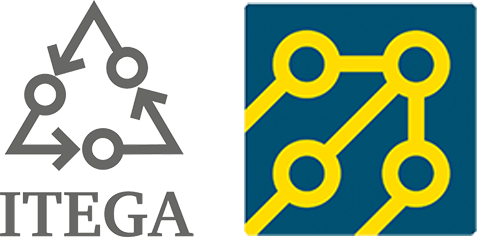Blockchain is a metaphor for doing things in a decentralized and distributed manner as much as possible.
The approach we have supported for the news industry is one in which there is a shared service for authenticating users, and vendors who run within that shared authentication service. They can aggregate access records for billing and personalization purposes.
But neither the authentication service or the billing service need to have any PII about an individual for this approach to work– the PII stays at the user’s “home base.” And beyond authentication and billing, there is little else that needs to be shared.
One can have a plurality of identity service agents (perhaps using Sovrin Foundation technology foundation from Evernym Inc. or other vendors), who might be publishers, and a plurality of content providers. All they are sharing is a set of common business rules and technology protocols for exchange of information about user authorizations and billable events (like access to an object at a particular URL).
With funding, ITEGA is prepared to project-manage a prototype federated authentication service, and Drummond Reed’s organization (Evernym) could field the identity-service agent technologies. Clickshare, my old company, has already built an anonymous user data exchange to put interest attributes of public users from many ITEGA member sources into interest cohorts. These can then be shared for advertising purposes without triggering problems with the European GDPR.
This all hangs together well; we need a collaborative effort at standards creation so that private vendors will build to it and the public will then be able to manage identity without reliance on Facebook or Google (unless of courrse they wish to rely upon them). They could, instead, rely upon Hearst, or Meredith or Gannett or McClatchy, or their public-broadcasting station, or the AAPR or anyone who wants to make money helping people manage their indentity and find — and sometimes pay for — information that matters to them.
The standards organization has to have a “hook” to control compliance by members. That hook is a globally unique, universal ID issued to ITEGA member organizations; they must be authenticated to ITEGA periodically; if they have become bad actors or aren’t paying dues, the ID won’t work and their to other network-member services will fail. This will be analogous to a bad-actor merchant being cut off the Visa network.
That’s a lot of power and why it needs to be vested in a 501(c)3 nonprofit, with a global view, an expansive and inclusive board (NOT just one industry) and with no profit motive other than to cover governance and compliance services with perhaps something left over for making grants in the service of journalism.
The lack of a profit motive is the reason why competititors in the marketplace will trust it. A better approach than New Century Network, or NewsRight and the early implemention of Press+.
— By Bill Densmore
RELATED LINKS:
